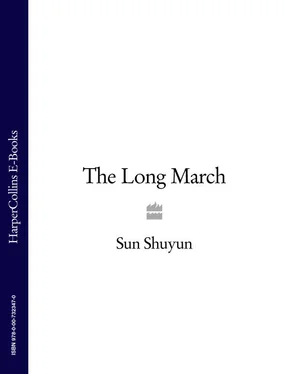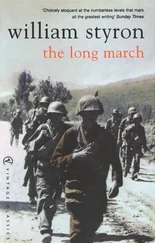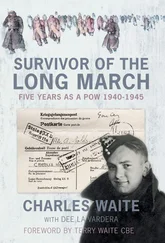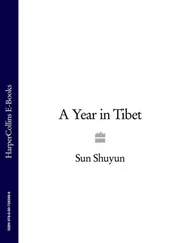I had always thought the peasants competed to join the Red Army – after all, it was to defend their land, their homes and their children. Our literature, art, films and school textbooks are full of stories and images of parents signing up their sons, wives persuading their husbands to fight, sisters making uniforms for their brothers, and young women seeing off their lovers to the front. I particularly remembered one metaphor: the Red Army was the fish and the peasants the water. The fish would be dead out of water, and the water would be poorer without the fish. The support of the peasants was the secret weapon of Communist success. As for forced conscription, I had always been told that only Chiang's army used it.
Wang laughed when I told her that. She held out her hands and said: ‘People are different, just like my ten fingers. Many had suffered like me, and they begged to join the Revolution. Recruitment was not difficult at all in the early campaigns. But as the war continued, it got harder and harder. There were not enough men around. Also people thought we were losing so they did not want to die for nothing. That was why we had to work on them.’
Wang was right. After five campaigns by Chiang's troops in five years, both the population and the area in the Jiangxi base had been reduced so drastically that a Red Army officer said it was no wider than an arrow's flight. In one year more than 160,000 men had been drafted into the Red Army just to break the Fifth Campaign. In fact, almost all the able–bodied men had already been enlisted. Mao did his own investigation in Changgang District in late 1933. Out of 407 men between the ages of 16 and 45, 79% were in the Red Army, very much as Party Secretary Liu reported for his district. 2 Perhaps the old man in Gangxi County was right: the Party was draining the pond to catch the fish.
‘We had to defend the base at all costs. The survival of the Party required it.’ Wang was adamant.
She had been ordered to deliver her quota of forty–five men in October 1934. For the first time in her life, she was having sleepless nights. But Wang quoted another saying. ‘A man should not be made desperate by his pee.’ She had an idea.
She put on her jacket and went outside. It was drizzling, dark and silent, with not even a dog barking: they had all been killed to stop them giving away the Army's movements. She tiptoed from house to house, alert for the sound of conversation. Suddenly she heard the voice of an old lady:
‘Aya, such a dreadful day! How are the three coping on the mountain? Perhaps you should take them their bamboo hats.’
‘What's the point? They must be soaked by now,’ replied a woman, perhaps her daughter–in-law.
Wang listened for a while, and then crept quietly to another window.
‘Party Secretary Liu is two-faced. In front of comrade Wang, he is all enthusiasm; behind her back, he badmouths the Red Army. What is he playing at?’ asked a young girl.
‘Stupid girl! Secretary Liu is thinking of us. The Red Army has been losing for the last six months. So many are being killed every day. If your brother hadn't deserted and gone into hiding, he would have been cannon fodder by now,’ grumbled a man, who seemed to be the father.
Now she understood what was going on. So there were still fish in the pond, and birds in the mountains. If she could persuade them to come out of hiding, she would not only meet her quota, but also send much-needed men to the front. But what was she going to do with Liu? She thought about it and decided to send a messenger immediately to the county Party headquarters. Then she launched her plan of action.
At the crack of dawn, Wang dispatched a dozen Red Pioneers to the nearby villages, requesting everyone to come to an urgent meeting that evening in Shi Village. Then she went to the house with the three deserters. The old lady and her daughter-in-law looked as if they had had a bad night. Wang inquired about the men in the family and the older woman said that her son was away as a porter for the Red Army, and her two grandsons were fighting at the front. ‘We all do our bit,’ she added, poker-faced.
‘By hiding in the mountains, granny?’ Wang asked.
The old lady lost her nerve, and blurted out: ‘Yes, you give us land, but with no men in the house, what can we do with it?’ She shrieked, pointing to her bound feet and her daughter-in-law's: ‘Thunder will strike women who work in the paddy. When your people called on our sons and husbands to join, they promised to send men to help on the land. Some turned up at the beginning, but they were more trouble than they were worth – you had to feed them and look after them. And soon nobody bothered to come. We haven't got much of a harvest this year. We complained to secretary Liu. He said we should go and loot, or get our men back.’
Wang might have sympathized if she had not pointed to their bound feet. That made her angry. Under the Communists, women could not get married unless they unbound their feet first, yet these women refused to free themselves. She and some other activists once attempted to straighten women's feet by force, but they soon went back to their old ways. In her eyes, they were like parasites, sitting at home waiting for their husbands to work the fields. They only had themselves to blame.
It baffled her how women could fail to support the Revolution. They benefited most – unbound feet, abolition of arranged marriages, violence towards women outlawed, and more roles for them in general. Their very happiness depended on the survival of the Soviet. When the New Marriage Law came out, tens of thousands of women immediately asked for a divorce, remarried and then divorced again. The local officials were so swamped by the paper work, the Party had to pass a decree forbidding men and women from marrying more than three times, and they must live together for at least two months before they could register for divorce.
What surprised me was that Wang did not walk out of her own arranged marriage, as she had persuaded many other women to do. On the contrary, she promised her husband that she would fulfil her wifely duty if he signed up for the Red Army. He did so the very next day, and his happiness was doubled when he was allowed into her bed without having to wait for another two years and honour her mother's request. Why was that?
‘Why not? The Red Army needed all the manpower it could get,’ she said in all seriousness.
‘But you weren't happy with him,’ I said.
‘What's happiness got to do with it? When so many people were suffering, how could you be happy? I couldn't,’ she reminded me, before she went inside to make more tea – her daughter had gone to the market to get things for supper.
A thought did occur to me, fleetingly: did Wang sign her husband up because she knew that would be the surest way of getting rid of him? As we say, bullets are blind. I was wrong. When she returned with the tea and biscuits, Wang said that her husband died from tuberculosis while she was busy recruiting in Gangxi County. He was desperate to prove he was worthy of her affection, and he exerted himself as a scout for the Red Army. His last words were: ‘Without seeing her, I cannot even close my eyes in death.’
I was ashamed I had even contemplated such a thought. It would have been to misjudge Wang entirely. I could not think myself into the degree of dedication she had attained. For her, and many of her generation, personal happiness and physical desire did not count – they were submerged in the excitement she felt for the Revolution. Yes, she had another recruit, and would be praised for it. But her innermost feeling was devotion – to the people and ideals that promised to lift China out of the oppression she saw all around her, and had been subjected to herself. I remembered the slogans and exhortations that filled our school books: ‘Communism is higher than the sky. Sacrifice everything for it.’ For me, they were just slogans; for Wang, it was faith.
Читать дальше







![Джеффри Арчер - The Short, the Long and the Tall [С иллюстрациями]](/books/388600/dzheffri-archer-the-short-the-long-and-the-tall-s-thumb.webp)




